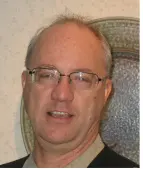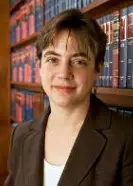Money, Democracy and the Constitution
Revolutionary Experience in the United States
Jan 25, 2013
Overview
This seminar explores the relationship between money and the legal formation of the modern liberal capitalist state, with a particular emphasis on the pre-Revolutionary and early United States. In contrast to conventional economic narratives that cast money as lubrication for existing forms of exchange, this event highlights the legal and political origins of our modern monetary system, and traces the influence of those forces on the shape of the modern economy. Questions to be addressed include:
- How are monetary systems shaped by constitutional processes?
- How was the United States monetary system affected by the revolution and drafting of the U.S. Constitution?
- What impact does the legal structure of money have on the character of an economy?
- What insights do historical revolutionary debates about money provide on current economic problems?
Outline
- GILLIAN METZGER: Opening Moderator Remarks0:00
- CHRISTINE DESAN: Presentation – Christine Desan1:34
- CHRISTINE DESAN: Why we need to understand money?1:40
- CHRISTINE DESAN: We have been neglecting money as a constitutional and legal project2:20
- CHRISTINE DESAN: Money as governance – contrasting creation myths2:55
- CHRISTINE DESAN: The traditional myth of money creation3:33
- CHRISTINE DESAN: The role of government in the traditional myth of money creation4:50
- CHRISTINE DESAN: MMT and chartalist view on money creation and how and why to complement it6:16
- CHRISTINE DESAN: Can we tell a story of the beginning of money that reveals money as governance? 8:05
- CHRISTINE DESAN: Money is a constitutional project8:16
- CHRISTINE DESAN: The pact that makes money9:03
- CHRISTINE DESAN: Imagining a society without liquidity – the barter world9:40
- CHRISTINE DESAN: How to mobilize goods as a group in the barter world?11:32
- CHRISTINE DESAN: Using money to measure and mobilize value – the government’s spending power12:12
- CHRISTINE DESAN: Citizens’ spending power14:13
- CHRISTINE DESAN: Exoneration of the tax obligation 15:50
- CHRISTINE DESAN: Bringing in money as a concept17:02
- CHRISTINE DESAN: Mode of payment and enforcement of agreements – the rise of the English Common Law17:30
- CHRISTINE DESAN: Property and Contract law18:30
- CHRISTINE DESAN: Birth of the functions that economists assume to money19:40
- CHRISTINE DESAN: Market and prices19:55
- CHRISTINE DESAN: What is constitutional about this story?21:35
- CHRISTINE DESAN: Engeneering the monetary landscape22:26
- CHRISTINE DESAN: The role of law and lawyers 24:29
- FARLEY GRUBB: Presentation Farley Grubb25:47
- FARLEY GRUBB: Legal Tender Laws as a debate in the Constitutional Era26:18
- FARLEY GRUBB: Situation in 178727:19
- FARLEY GRUBB: Position of Gouverneur Morris28:36
- FARLEY GRUBB: Legal tender laws in the colonial period as conflict between Britain and the colonies31:25
- FARLEY GRUBB: Problems with legal tender laws34:31
- FARLEY GRUBB: Time Discounting of US Savings Bonds36:50
- FARLEY GRUBB: How legal tender laws solve the problem of time discounting39:57
- FARLEY GRUBB: Problem with prior debt under the legal tender law regime42:00
- FARLEY GRUBB: Risks for merchants under the legal tender law regime: face value vs. present value44:36
- FARLEY GRUBB: Conclusion46:13
- WOODY HOLTON: Presentation47:20
- WOODY HOLTON: U.S. Constitution, Article I, Section 1049:19
- WOODY HOLTON: Issuing money today52:02
- WOODY HOLTON: Danger of Congress issuing paper money and Constitutional response to this danger55:54
- WOODY HOLTON: The Tenth Federalist1:00:31
- WOODY HOLTON: Charles Beard: An Economic Interpretation of the U.S. Constitution 1:05:37
- WOODY HOLTON: Conclusion1:07:38
- WOODY HOLTON: The alternative narrative: taxation without representation as the reason for the devestating recession of the 1780s1:08:05
- GILLIAN METZGER: Opens the Q&A1:10:29
- WOODY HOLTON: What was so wrong with paper money that was not legal tender? 1:11:25
- CHRISTINE DESAN: Redemption of money and taxing money in, and why some legislatures failed to do it (entirly)1:12:14
- FARLEY GRUBB: How did coordination of federal and state powers in favor of monetary and other institutions work?1:13:25
- WOODY HOLTON: How did coordination of federal and state powers in favor of monetary and other institutions work?1:16:40
- CHRISTINE DESAN: Money is nation building 1:18:55
- WOODY HOLTON: How to protect property rights from creditors?1:20:42
- CHRISTINE DESAN: How did the populist slogan “taxation without representation” play in?1:23:34
- FARLEY GRUBB: Can the money supply be controlled by the government?1:26:28
- CHRISTINE DESAN: The money supply is inherently legally controlled1:29:29
- FARLEY GRUBB: Who is creating money?1:31:05
- CHRISTINE DESAN: Constitutional debate about who is creating money1:34:45
- CHRISTINE DESAN: What should be the institutional implications of this today?1:36:20
- FARLEY GRUBB: Assumption of state debt and the Whiskey Rebellion1:42:08
- FARLEY GRUBB: Restricted access to democracy at the federal level1:45:10
- FARLEY GRUBB: How did we arrive at the oppressive structure of money we have today?1:49:22
- FARLEY GRUBB: Who should we trust to create the money?1:51:45
- FARLEY GRUBB: Comparaison between US monetary system and other countries1:56:40
- CHRISTINE DESAN: Transition from commodity money to bank issued money1:59:22
Participants

Speaker
Christine Desan
Professor of Law
Harvard Law School

Speaker
Farley Grubb
Professor of Economics
University of Delaware

Speaker
Woody Holton
Peter and Bonnie McCausland Professor of History
University of South Carolina

Moderator
Gillian Metzger
Stanley H. Fuld Professor of Law and Co-Director of the Center for Global Governance
Columbia Law School
Core Readings
hristine Desan
Farley Grubb
Woody Holton
Related Materials
Interview With William Hogeland, How Big Finance Won The American Revolution
Interview with William Hogeland, How Big Finance Won the American Revolution., 2012.